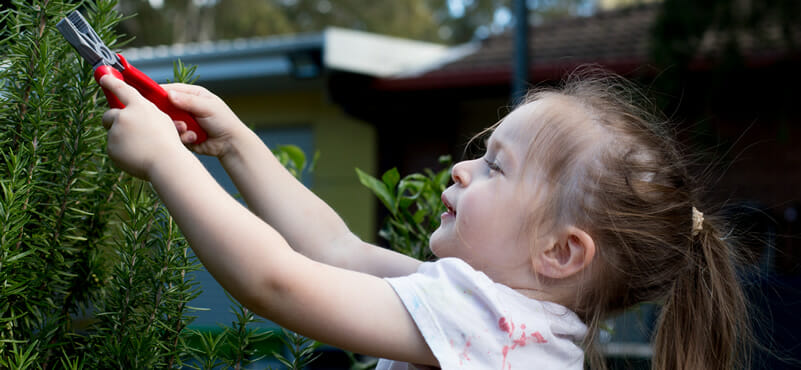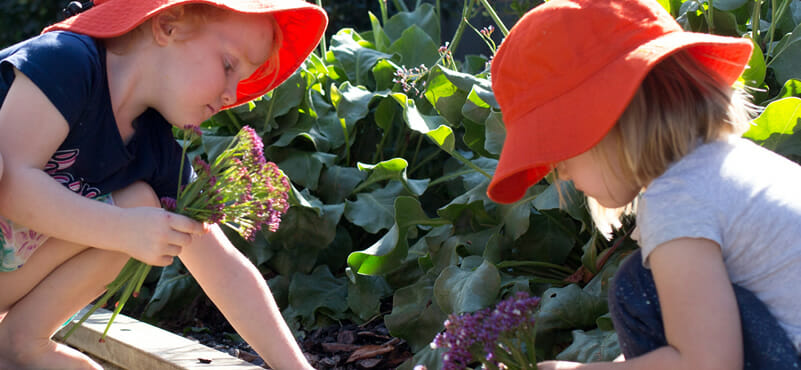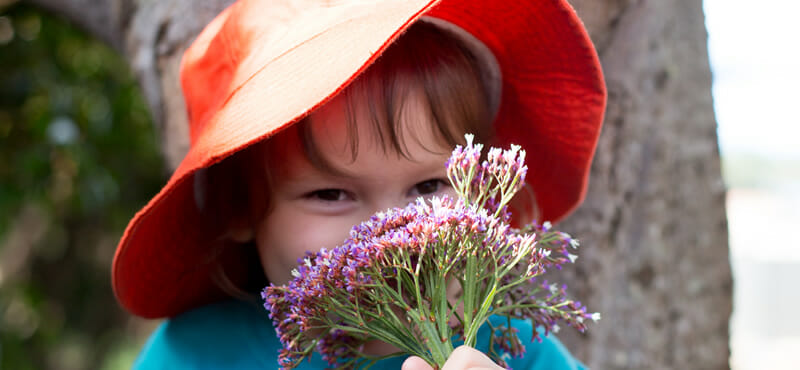
Why is gardening a great pastime?
For those who love to garden, what’s there not to love about it? For all those who haven’t yet developed a love of gardening, here’s a reminder of all the benefits!
First of all, just being outside in the fresh air and the sunshine. There’s something about getting back to nature and feeling the sun and the air against your skin. If you’re a carefree Aussie that likes to wander around barefoot, then feeling the grass between your toes as you walk around your backyard or the smell of fresh compost as you pot new seeds or plants. Add to that the satisfaction you get from weeding, pruning and watching plants grow. You’ll reap so many more rewards from tending to your garden, as it has a calming effect, as well as increasing your happy hormones from the physical assertion of pulling out weeds, pruning and mowing etc.
‘The glory of gardening: hands in the dirt, head in the sun, heart with nature. To nurture a garden is to feed not just the body, but the soul’ – Alfred Austin
Benefits of gardening with your child
Gardening is a great way for everyone to stay fit, healthy and enjoy all it has to offer. This is just as important for children, who are generally drawn to nature, and it’s a great way to help them develop lots of skills plus get them outside and active!
One way to encourage your child to help in the garden is to plant herbs – not only allowing them to understand where their food comes from but to provide them with a role and the responsibility to care for and nurture the plants.
Gardening and planting herbs can also be done at home in pots on the verandah, indoors or on a windowsill if you don’t have a backyard. It doesn’t matter whether you have a backyard or how big or small it is, you can still teach your child about caring for nature and the environment from your own home.
Your child can help you with choosing herbs at the shops, preparing the soil in a container, planting, watering, waiting, picking the herbs and helping in the kitchen. These are all valuable tasks to help them improve essential developmental skills:
- Showing where plant-based food comes from and how it is grown, including vegetables, fruit and herbs, everything starts from a tiny seed!
- Patience: Once they have planted their seeds, waiting for them to start sprouting (which is really exciting once the tiny shoots start to appear), watching the herbs grow into plants they can actually eat – touching them and tasting them and appreciating them as part of a meal.
- It helps you to teach your child about healthy eating as vegetables and herbs play such a big part in our health. Many herbs are also used in herbal supplements and health care as well as in modern medicines.
- It’s a great way to find quiet time out with the natural calming effects of connecting to nature.
- Growing herbs helps to develop motor skills, especially fine motor skills through pouring dirt into containers, planting each seed with space in between and covering them.
- Looking after the herbs and watering them daily provides your child with some responsibility that, in turn, builds their confidence.
- Gardening develops your child’s understanding of science as they learn about life cycles, watching plants grow from a tiny seed to a plant. Some seeds will grow well, while others won’t. Sometimes plants get too much water or too much sun and won’t grow, or may wither and die. This is real life learning as they see the impact of the seasons on living things as well as the balance and care that is needed for nature to thrive.
- Math learning is also incorporated when growing herbs, as you use vocabulary associated with size concepts such as tiny, bigger, and biggest. You can use a ruler to record the measurement and height of the plant every week, learning early numeracy and graphing skills, either on paper or a device. A fun plant growth story you might like to share with your child is the well-known story of ‘The great big, enormous turnip.’

What herbs could you plant?
Choose herbs that you use in your cooking. That way, your child can see where their food comes from and how to use it. Make sure you involve them in picking the herbs and preparing them, and which dishes you use them in.
Here are four of our top picks:
- Rosemary
A Mediterranean herb with fragrant leaves that is used in adding flavour to various meat dishes such as chicken and lamb, on oily fish and great on roast potatoes with sea salt.
- Basil
A sweet-smelling annual herb that’s also used for its leaves to season food. Most commonly used to complement tomato and mozzarella salads and to make pesto sauce which is delicious in pasta, or drizzled over roast meat dishes such as chicken breast to add flavour and colour.
- Continental parsley
Native to southern Italy, parsley is particularly good to garnish food at the end of cooking for flavour and decoration. Use in salads or on pasta dishes. It’s also great for reducing garlic or onion breath!
- Mint
A perennial herb (one that will continue to grow for at least two years) is another aromatic herb from the Mediterranean region. Ideal for settling a sore tummy or aiding digestion, it’s a popular herb used as a refreshing tea, either hot or cold. You may also enjoy it in a mint jelly or sauce to accompany roast lamb, and it’s delicious in watermelon popsicles on a summer’s day.
Whatever you choose to plant, make sure it’s easy and fun. Herbs don’t need a lot of space, so even if you don’t have a yard, you can still plant them in pots and start teaching your children all those amazing skills, and perhaps develop green fingers yourself!
St Joseph’s Family Services Programs
We grow and use a lot of herbs at our centres, a particular favourite being garlic herbs. We use these to make our own garlic bread which everyone loves! We often make herbed pasta or herb bread with parsley and chives, Italian herbs or any mix of herbs that we have grown.
We also grow other plants, including strawberries. The children are naturally drawn to our garden as they enjoy picking herbs and looking out for strawberries. We encourage them to take an interest in the weekly watering and nurturing of our plants, teaching them patience, love, care and teamwork, working together to maintain, share and enjoy the garden during the different seasons.

Developing self-esteem
Did you know that child theorist, Maria Montessori, believes there are far-reaching benefits from involving children in real life works such as gardening and cooking? This includes developing your child’s self-esteem as they use real life tools in nature, then prepare and cook the produce from their own garden.
We also use real life cutlery and tools as children cut the herbs from the garden with child sized scissors and as we use spoons and knives carefully supervised by Educators who cook the herbs we have planted with the children. Children are also more likely to try new foods and eat foods they have cooked themselves.
As well as cooking, our children put the leftover scraps from our fruit platters into the worm farms at composts at our centres, and then the ‘worm wee’ is used to fertilize our gardens. We encourage the children to use their senses whilst gardening, such as taste, sight and touch. As part of looking at native insects and animals in the garden, we have previously researched native bees, and St Josephs Preschool have their own beehive. We look at discovering interwoven connections and discussing respect for the environment, helping the children develop care and appreciation of all living things.
Hygiene and safety
A fun part of gardening is getting messy! This provides our Educators with an opportunity to teach correct handwashing procedures and how to keep safe in the garden. Our children love being involved in the whole process, from wearing gloves to protect their hands and safely using tools for planting.
Companion planting
We are looking at incorporating ‘companion planting’ into our gardening program. This will extend upon the following concepts:
- Pollination
- Pest control
- Habitats for insects
- Enhancing flavour
- Improving growth
- Maximizing space
Our garden is a natural educational hub
Our children can explore our garden time and time again and still discover something new! From learning about bugs and creating insect homes, how the weather impacts our plants and garden, to understanding more about the visiting birds and lizards.
A natural haven for everyone, a garden provides a connection to nature and a hobby that’s fun and rewarding – so what are you waiting for? Start planting today and reap the benefits.
For more information, please contact us.







Leave A Comment